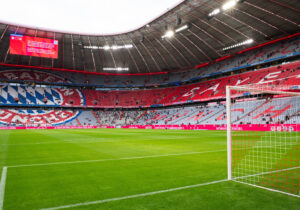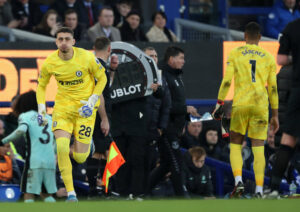As West Ham United’s players walked off the pitch at the Olympic Stadium on Saturday, the Hammers had won a point against Manchester City. That meant their form was now eight points from four league games. This was a far cry from a side that looked to be very much in turmoil at the earlier parts of the season. This wasn’t part of the West Ham narratives right before manager David Moyes had a spell working from home.
Perhaps the Hammers are the definition of how this season can go, and how narratives can change at any time. And in this supposedly topsy-turvy campaign, narratives are likely to get turned on their heads. Perhaps that reflects how hasty this age of football analysis is.
West Ham Are Epitomising Danger of Narratives
West Ham’s Early Season Narratives
At the start of the campaign, West Ham had suffered defeat in a listless home defeat to Newcastle. The Hammers turning out a mediocre display against Newcastle in their first league game would be less torrid if there hadn’t been a pre-season kerfuffle that preceded it. Before the season kicked off, West Ham had sold youngster Grady Diangana to West Bromwich Albion.
The sale of Diangana looked to be the trigger for upheaval and discontent. Skipper Mark Noble voiced his displeasure over the departure of the Diangana on Twitter. It was a move that was, by social media interaction, supported by fellow Hammer Declan Rice. Hence, a mutiny looked to be brewing, Moyes looked like his days were numbered as another fall-guy for the hapless Gold-Sullivan-Brady leadership. Then came the defeat against the Magpies, a game that, you sense, if it were in the presence of fans, would have been worse. Plus, Moyes’ side had a daunting run coming up.
West Ham’s Recovery and Rejuvenation
The first of those fixtures after the Newcastle loss was away at Arsenal, and when they fell behind, it looked to be bad business as usual. But West Ham rallied, and only experienced a rather undeserved defeat due to a late Eddie Nketiah goal. Then the Hammers followed that up with somewhat jaw-dropping wins against Wolverhampton Wanderers and Leicester City, two teams who made the top-seven last term.
After that was the Tottenham Hotspur game when they went three down after 15 minutes and looked to be heading for a thrashing. Perhaps things were reverting back to normal. Except not, as the Irons found a way to score three times in the final eight minutes to inexplicably salvage a point at White Hart Lane. Remarkably, West Ham had faced a genuine prospect of six games without a point, yet after the sixth weekend, they are above both Manchester clubs.
The Danger of Narratives – Particularly This Season
One of the accusations of modern football is the endless need for narratives, and with reason. This is very much the age of a 24-hour cycle of football coverage. Therefore, the game is under the spotlight vigorously and more so than ever before, from television debates and think pieces to podcasts. The problem with such coverage is the constant need for narratives. Everything has to mean something, a precursor to something or a consequence of something. We are in danger of not letting football just happen.
This season might be case in point. No fans (in most places yet), a seemingly continuous cycle of game-after-game; factors that will affect the season as a whole. In the second month of the season, Everton, Aston Villa and Leeds are in the Premier League top four. Neither Real Madrid nor Barcelona lead La Liga. In France, Paris Saint-Germain have lost two games in Ligue 1 already.
In a crammed and jam-packed calendar, any sort of narrative that’s come up is likely to be ever-changing and will not age well. Perhaps it’s time to just breathe, and take it as it is. Just Let football happen.
Main Photo
Embed from Getty Images






